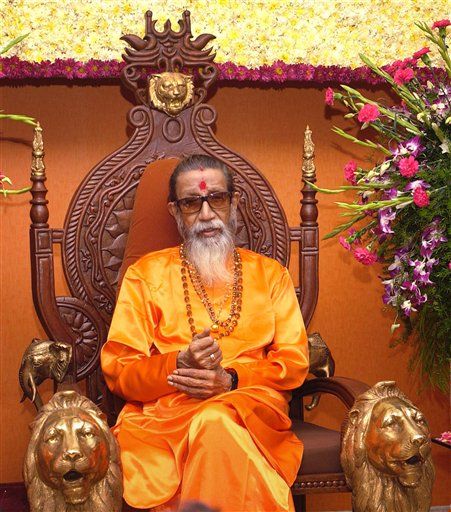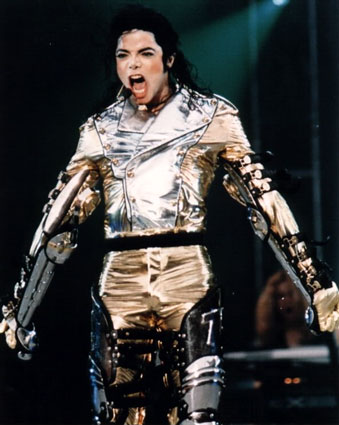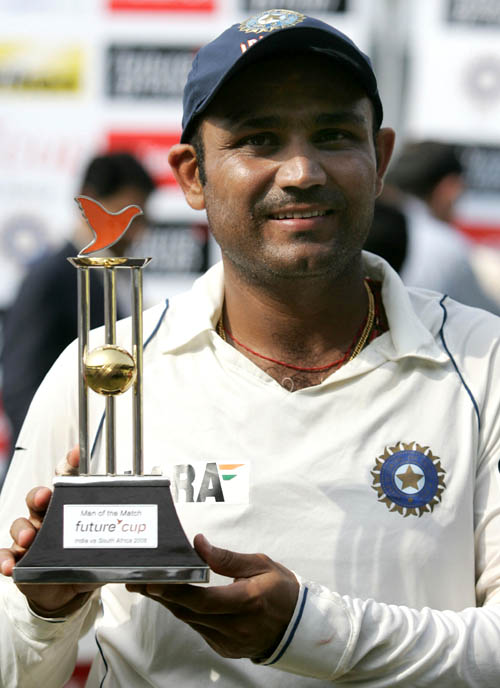Japan PM meets destiny in tsunami tragedy
Japan's Prime Minister Naoto Kan speaks to the media prior to his inspection tour of the country's biggest recorded earthquake aboard a military helicopter, at his official residence in Tokyo on Saturday, March 12, 2011. (AP Photo/Kyodo News) MANDATORY CREDIT, NO LICENSING ALLOWED IN CHINA, HONG KONG, JAPAN, SOUTH KOREA AND FRANCE
Woman, 70, found alive 4 days after Japan tsunami
Scenes of devastation at heart of Japan disaster
French South Pacific eases tsunami alert
Japan upgrades magnitude of killer quake to 9.0
Tech companies pitch in on earthquake response
Survivors of 2004 tsunami shaken by Japan disaster
Tsunami surge deals blow to struggling Calif. town
Asian Champions League soccer in Japan called off
Japan hit by aftershocks after powerful earthquake
Quake impact on insurers ranges from $10B to $50B
Tokyo power utility holds off on power cuts
Japan braces for N-reactor meltdown after tsunami
IAEA: 170,000 evacuated near Japan nuclear plant
Japan's nuke crisis raises radiation fears
Malaysia paper apologizes for comic tsunami image
Panic buying adds to shortages after Japan quake
Calif. harbor closed as crews remove sunken boats
Tsunami-ravaged hospitals leave the sick in misery
Japan man saved from rooftop that floated to sea
Japan feeds more money to banks as stocks slump
Strength of deadly Japan quake increased to 9.0
Hundreds of bodies wash ashore in quake-hit Japan
Pope prays for Japan quake victims, encourages aid
How to help earthquake victims in Japan, Pacific
Fears of health risks rise amid Japan crisis
Tsunami anticipation unusual event for TV
Third explosion rocks Japanese nuclear plant
Japan central bank feeds markets money after quake
J-League, pro sports postponed amid deadly tsunami
2nd explosion at stricken Japan nuke plant
Calif., Ore. sustained most US damage from tsunami
P&G says Japan employees safe, plants operating
Automakers shut plants after earthquake, tsunami
Pentagon: All US military in Japan accounted for
Quake and tsunami a blow to fragile Japan economy
Key developments in the earthquake and tsunami
Japanese-Americans seek news of quake back home
Tsunami surge deals blow to struggling Calif. town
Governor: Calif. ready to help Japan quake victims
Japan quake causes day to get a wee bit shorter
Japan quake to cost insurers almost like Katrina
US aircraft carrier headed to help Japan
Hawaii tsunami damages jump to tens of millions
Japan begins to dig for dead amid nuclear crisis
How people can help the Japanese earthquake recovery
Obama: Japan earthquake potentially 'catastrophic'
Quake is 5th biggest, but Japan best prepared
Millions without food, water, power in Japan
Aflac CEO Q&A: Quake devastation always a shock
'Hereafter' tsunami movie stops showing in Japan
More News
G-8 diplomats short of deal on Libya response Thousands of Gazans rally for reconciliation Rights group forced out of Uzbekistan North Korea willing to talk about uranium program Japan PM meets destiny in tsunami tragedy NKorea agrees to take back 27 who entered South Battle for Zawiya tested Libyan rebel strength Chavez, allies lead push for Libya mediation Kyrgyz plan to host anti-terror training center Police raid party HQ in Zimbabwe Anti-government tribesmen kill 4 Yemeni soldiers Tibetans urge Dalai Lama to stay on as leader Japan's nuke crisis raises radiation fears Israelis remember soldier still in militant hands Filipino militant linked to airport blast captured Lebanese Archbishop Bechara el-Rai new patriarch Indian paper gets access to WikiLeaks cables South Africans decry rapes of lesbians Germany charges al-Qaida suspect In rebel capital, Gadhafi's spies keep watch There are two Naoto Kans who live within the Japanese imagination.
One is the crusading health minister of the 1990s who stood up to his own bureaucracy to lift the lid on a horrific AIDS scandal. The other is the uninspiring prime minister of today, whose dithering leadership sent his popularity rating below 20 percent.
Now Japan's tsunami tragedy and nuclear crisis are drawing out glimmers of the old Kan - and could make or break him and his government.
On Tuesday morning, he announced he was personally taking control of crisis management at the Tokyo Electric Power Co., the operator of a stricken nuclear power plant that was spewing radiation in a dramatic escalation of the crisis.
The utility is notorious for an instinct to cover up nuclear problems, and Kan's action - along with the frequency of his government's updates - shows greater willingness than previous administrations to be up front with the public.
"There is still a very high risk of more radiation coming out," the 64-year-old prime minister said in a nationally televised statement Tuesday. "We are making utmost efforts to prevent further explosions and radiation leaks."
His response to last Friday's devastating earthquake and tsunami and the resulting nuclear crisis has shown flickers of the passion he exhibited in his early years as an environmental activist and health minister, instead of the shuffling listlessness Japan has become accustomed to.
"I promise to risk my life on this job," an emotional Kan told the nation, after surveying the devastation in a helicopter.
Along with tours of disaster sites and midnight meetings with the media, there has been concrete action that marks a departure from the secretive, slow-footed leadership that has enraged Japan time and again in times of national trauma.
Kan swiftly dispatched the military to help rescue efforts. He opened the door to foreign aid - including one-time enemies South Korea and China - a departure from past governments that said it wasn't needed. He has sent his top spokesman to confront the media day and night on the nuclear crisis, though the message has seemed confused at times in what is admittedly a complicated situation.
To be sure, all this is a pale shadow of the response of Rudy Giuliani, the former mayor of New York who rallied his city after the Sept. 11, 2001, terrorist attacks. In a country not known for strong leaders, though, it seems to mark a shift.
An earlier government did not react as decisively after a 1995 earthquake in Kobe that killed 6,400 people. It waffled over sending troops. Relief supplies from overseas piled up in warehouses. Emergency food deliveries were delayed, leaving survivors hungry.
"What we are seeing is a new style of Japanese crisis management," said Thomas Berger, a Japan expert at Boston University. He was in Kobe just before the 1995 quake and said the contrast between then and now is enormous.
Kan's response offers both risk and opportunity.
If he brings relief to a stricken nation and gets the nuclear crisis under control, he could be hailed as a hero. But boldness can be punished swiftly in Japan at the first signs of failure, and his political enemies will be waiting for any opportunity to pounce.
In a way, though, this is Kan's kind of crisis.
Unlike arcane wrangles over budgets, the lines between right and wrong are clear; instead of the Machiavellian strategizing to score political points, he can dust off his old ordinary guy image to appeal for unity.
Kan became a household name in 1996 - a year after the Kobe quake - when as health minister he revealed his ministry's role in an HIV-tainted blood scandal that had infected up to 2,000 hemophiliacs a decade earlier.
The unprecedented spectacle of a minister turning on his own ministry to expose the truth propelled him to the top of the list of politicians people wanted to see become prime minister.
Since then, however, he has become ensnared in adultery and pension fund scandals and the vortex of backroom dealmaking that sits at the heart of Japanese politics. He emerged as prime minister last June only after other leaders of his Democratic Party fell.
The day of the earthquake, his job was starting to look in jeopardy amid revelations he had received political donations from a foreigner, which is illegal in Japan. Now that's at least temporarily forgotten, giving him a fresh opportunity to prove himself.
No major opinion polls have been taken since the earthquake. On the streets of Tokyo, some people are still lukewarm.
"He's seems to be trying very hard," said 62-year-old chauffeur Yoshitaka Nishimura. "I wouldn't say he's showing leadership, but he's trying to show leadership."
If Kan's handling of the crisis enhances his standing, there could be broader consequences for Japan's future.
Early this year, he launched an ambitious reform plan to lift Japan out of its economic malaise. The plan has languished amid infighting within his own political camp. Successful management of this disaster could give him the clout he needs to push his vision of change.
For Boston University's Berger, Kan's quake response is a sign that change has already been coming to Japan - albeit slowly.
"We often talk about how Japan is succumbing or suffering from paralysis," he said. "It's like bamboo. If you just see it, it doesn't do anything. If you look at it over time there is real growth and change."
Read more: http://www.kansascity.com/2011/03/15/2726403/japan-pm-meets-destiny-in-tsunami.html##ixzz1Gf3p87pf
Japan's Prime Minister Naoto Kan speaks to the media prior to his inspection tour of the country's biggest recorded earthquake aboard a military helicopter, at his official residence in Tokyo on Saturday, March 12, 2011. (AP Photo/Kyodo News) MANDATORY CREDIT, NO LICENSING ALLOWED IN CHINA, HONG KONG, JAPAN, SOUTH KOREA AND FRANCE
Woman, 70, found alive 4 days after Japan tsunami
Scenes of devastation at heart of Japan disaster
French South Pacific eases tsunami alert
Japan upgrades magnitude of killer quake to 9.0
Tech companies pitch in on earthquake response
Survivors of 2004 tsunami shaken by Japan disaster
Tsunami surge deals blow to struggling Calif. town
Asian Champions League soccer in Japan called off
Japan hit by aftershocks after powerful earthquake
Quake impact on insurers ranges from $10B to $50B
Tokyo power utility holds off on power cuts
Japan braces for N-reactor meltdown after tsunami
IAEA: 170,000 evacuated near Japan nuclear plant
Japan's nuke crisis raises radiation fears
Malaysia paper apologizes for comic tsunami image
Panic buying adds to shortages after Japan quake
Calif. harbor closed as crews remove sunken boats
Tsunami-ravaged hospitals leave the sick in misery
Japan man saved from rooftop that floated to sea
Japan feeds more money to banks as stocks slump
Strength of deadly Japan quake increased to 9.0
Hundreds of bodies wash ashore in quake-hit Japan
Pope prays for Japan quake victims, encourages aid
How to help earthquake victims in Japan, Pacific
Fears of health risks rise amid Japan crisis
Tsunami anticipation unusual event for TV
Third explosion rocks Japanese nuclear plant
Japan central bank feeds markets money after quake
J-League, pro sports postponed amid deadly tsunami
2nd explosion at stricken Japan nuke plant
Calif., Ore. sustained most US damage from tsunami
P&G says Japan employees safe, plants operating
Automakers shut plants after earthquake, tsunami
Pentagon: All US military in Japan accounted for
Quake and tsunami a blow to fragile Japan economy
Key developments in the earthquake and tsunami
Japanese-Americans seek news of quake back home
Tsunami surge deals blow to struggling Calif. town
Governor: Calif. ready to help Japan quake victims
Japan quake causes day to get a wee bit shorter
Japan quake to cost insurers almost like Katrina
US aircraft carrier headed to help Japan
Hawaii tsunami damages jump to tens of millions
Japan begins to dig for dead amid nuclear crisis
How people can help the Japanese earthquake recovery
Obama: Japan earthquake potentially 'catastrophic'
Quake is 5th biggest, but Japan best prepared
Millions without food, water, power in Japan
Aflac CEO Q&A: Quake devastation always a shock
'Hereafter' tsunami movie stops showing in Japan
More News
G-8 diplomats short of deal on Libya response Thousands of Gazans rally for reconciliation Rights group forced out of Uzbekistan North Korea willing to talk about uranium program Japan PM meets destiny in tsunami tragedy NKorea agrees to take back 27 who entered South Battle for Zawiya tested Libyan rebel strength Chavez, allies lead push for Libya mediation Kyrgyz plan to host anti-terror training center Police raid party HQ in Zimbabwe Anti-government tribesmen kill 4 Yemeni soldiers Tibetans urge Dalai Lama to stay on as leader Japan's nuke crisis raises radiation fears Israelis remember soldier still in militant hands Filipino militant linked to airport blast captured Lebanese Archbishop Bechara el-Rai new patriarch Indian paper gets access to WikiLeaks cables South Africans decry rapes of lesbians Germany charges al-Qaida suspect In rebel capital, Gadhafi's spies keep watch There are two Naoto Kans who live within the Japanese imagination.
One is the crusading health minister of the 1990s who stood up to his own bureaucracy to lift the lid on a horrific AIDS scandal. The other is the uninspiring prime minister of today, whose dithering leadership sent his popularity rating below 20 percent.
Now Japan's tsunami tragedy and nuclear crisis are drawing out glimmers of the old Kan - and could make or break him and his government.
On Tuesday morning, he announced he was personally taking control of crisis management at the Tokyo Electric Power Co., the operator of a stricken nuclear power plant that was spewing radiation in a dramatic escalation of the crisis.
The utility is notorious for an instinct to cover up nuclear problems, and Kan's action - along with the frequency of his government's updates - shows greater willingness than previous administrations to be up front with the public.
"There is still a very high risk of more radiation coming out," the 64-year-old prime minister said in a nationally televised statement Tuesday. "We are making utmost efforts to prevent further explosions and radiation leaks."
His response to last Friday's devastating earthquake and tsunami and the resulting nuclear crisis has shown flickers of the passion he exhibited in his early years as an environmental activist and health minister, instead of the shuffling listlessness Japan has become accustomed to.
"I promise to risk my life on this job," an emotional Kan told the nation, after surveying the devastation in a helicopter.
Along with tours of disaster sites and midnight meetings with the media, there has been concrete action that marks a departure from the secretive, slow-footed leadership that has enraged Japan time and again in times of national trauma.
Kan swiftly dispatched the military to help rescue efforts. He opened the door to foreign aid - including one-time enemies South Korea and China - a departure from past governments that said it wasn't needed. He has sent his top spokesman to confront the media day and night on the nuclear crisis, though the message has seemed confused at times in what is admittedly a complicated situation.
To be sure, all this is a pale shadow of the response of Rudy Giuliani, the former mayor of New York who rallied his city after the Sept. 11, 2001, terrorist attacks. In a country not known for strong leaders, though, it seems to mark a shift.
An earlier government did not react as decisively after a 1995 earthquake in Kobe that killed 6,400 people. It waffled over sending troops. Relief supplies from overseas piled up in warehouses. Emergency food deliveries were delayed, leaving survivors hungry.
"What we are seeing is a new style of Japanese crisis management," said Thomas Berger, a Japan expert at Boston University. He was in Kobe just before the 1995 quake and said the contrast between then and now is enormous.
Kan's response offers both risk and opportunity.
If he brings relief to a stricken nation and gets the nuclear crisis under control, he could be hailed as a hero. But boldness can be punished swiftly in Japan at the first signs of failure, and his political enemies will be waiting for any opportunity to pounce.
In a way, though, this is Kan's kind of crisis.
Unlike arcane wrangles over budgets, the lines between right and wrong are clear; instead of the Machiavellian strategizing to score political points, he can dust off his old ordinary guy image to appeal for unity.
Kan became a household name in 1996 - a year after the Kobe quake - when as health minister he revealed his ministry's role in an HIV-tainted blood scandal that had infected up to 2,000 hemophiliacs a decade earlier.
The unprecedented spectacle of a minister turning on his own ministry to expose the truth propelled him to the top of the list of politicians people wanted to see become prime minister.
Since then, however, he has become ensnared in adultery and pension fund scandals and the vortex of backroom dealmaking that sits at the heart of Japanese politics. He emerged as prime minister last June only after other leaders of his Democratic Party fell.
The day of the earthquake, his job was starting to look in jeopardy amid revelations he had received political donations from a foreigner, which is illegal in Japan. Now that's at least temporarily forgotten, giving him a fresh opportunity to prove himself.
No major opinion polls have been taken since the earthquake. On the streets of Tokyo, some people are still lukewarm.
"He's seems to be trying very hard," said 62-year-old chauffeur Yoshitaka Nishimura. "I wouldn't say he's showing leadership, but he's trying to show leadership."
If Kan's handling of the crisis enhances his standing, there could be broader consequences for Japan's future.
Early this year, he launched an ambitious reform plan to lift Japan out of its economic malaise. The plan has languished amid infighting within his own political camp. Successful management of this disaster could give him the clout he needs to push his vision of change.
For Boston University's Berger, Kan's quake response is a sign that change has already been coming to Japan - albeit slowly.
"We often talk about how Japan is succumbing or suffering from paralysis," he said. "It's like bamboo. If you just see it, it doesn't do anything. If you look at it over time there is real growth and change."
Read more: http://www.kansascity.com/2011/03/15/2726403/japan-pm-meets-destiny-in-tsunami.html##ixzz1Gf3p87pf










0 Comments